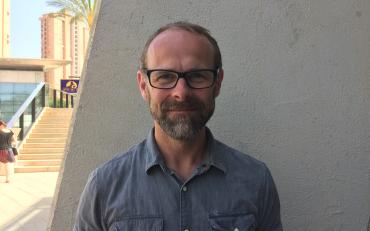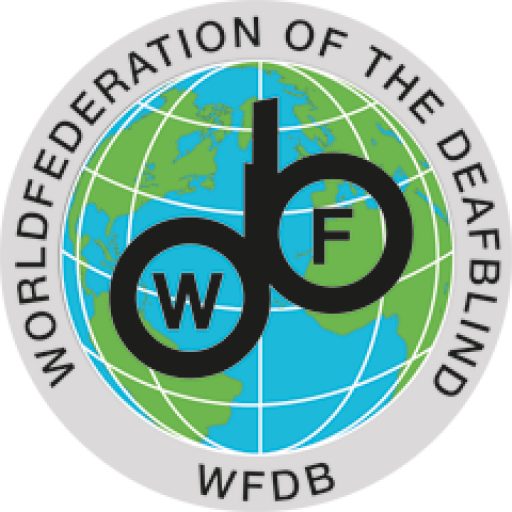 The recently elected vice-president of the World Federation of the Deafblind (WFDB), Klas Nelfelt, was interviewed during the WFDB General Assembly and the Helen Keller World Conference (HKWC), in Benidorm, 19-27 June 2018. The events were hosted and co-organised by FASOCIDE – Federación de Asociaciones de Personas Sordociegas de España (Spanish Federation of Associations of Deafblind People) and WFDB, with technical support from IDA. The events were made possible by financial support from Ministry of Foreign Affairs of Norway, UK AID, and Fundación ONCE.
The recently elected vice-president of the World Federation of the Deafblind (WFDB), Klas Nelfelt, was interviewed during the WFDB General Assembly and the Helen Keller World Conference (HKWC), in Benidorm, 19-27 June 2018. The events were hosted and co-organised by FASOCIDE – Federación de Asociaciones de Personas Sordociegas de España (Spanish Federation of Associations of Deafblind People) and WFDB, with technical support from IDA. The events were made possible by financial support from Ministry of Foreign Affairs of Norway, UK AID, and Fundación ONCE.
“My name is Klas Nelfelt, I come from Sweden and I was elected vice-president of the WFDB.
I have hearing and vision loss, but I am not completely deafblind. The big challenges for us are that the society understand that persons with deafblindness need different kinds of support from other groups but also among the group of persons with deafblindness itself.
Employment is extremely important to for persons with deafblindness to actively participate in the society, to be empowered and live independently. We also need to accommodate all persons with deafblindness so that they can be hired, retained and have the same opportunities and freedom of choice like everyone else.
We have to take into account that regarding access to employment and social protection, in each region and country of the world, we might need to find solutions that are different from one to another. At the same time, we need to stay open to dialogue, share information and learning from other good practices.
If we provide information on deafblindness, and the society understands the variety of persons it includes and the services that we require to fully participate in daily life, we will get to a point, where we will have the means to really leave no person with deafbindness behind.
The “No one left behind” report is a fundamental starting point, so that countries can use it to make sure that persons with deafblindness enjoy all their rights on an equal basis with others. The follow-up reports that we will continue publishing, will continue giving data and guidance to countries, so that they can ensure our inclusion and active participation.”
